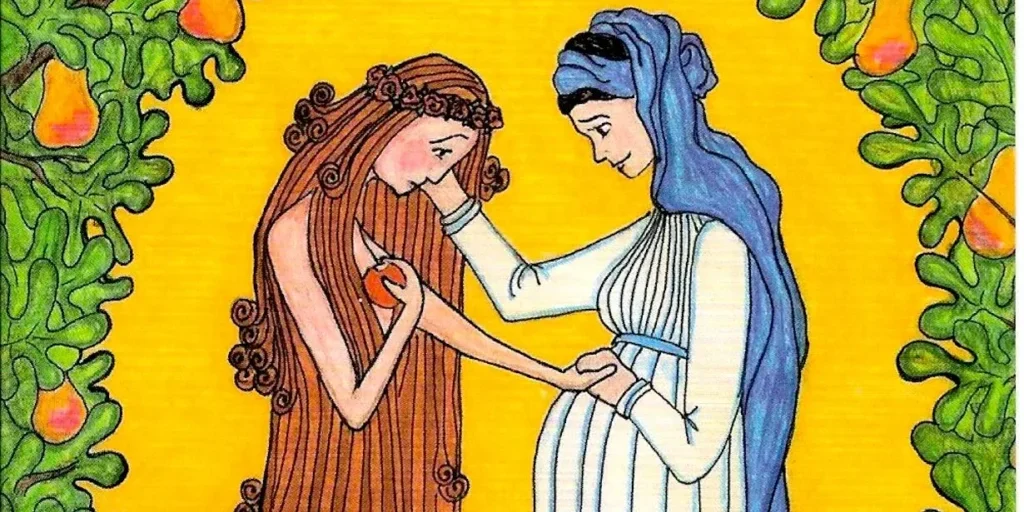
Should Evangelicals Call Mary the “Mother of God”?
The question of what to do with Mary the mother of Jesus is not one Evangelicals consider very often. It is easy to simply dismiss the notion that any careful consideration of Mary should be made. Isn’t honoring Mary a Roman Catholic thing? This general ethos can cause Evangelicals to get particularly squeamish around the language of “theotokos” (the Mother of God) in the Chalcedonian Statement on Christology. There is good reason, however, for maintaining the language in the Statement, but to get a clear picture, we should go all the way back to the beginning.Isn’t honoring Mary a Roman Catholic thing? Click To Tweet
In the garden of Eden, after Adam had disobeyed God and before he was forced out of the garden, God promised in Genesis 3:15 that a seed would come from the woman, who would crush the head of the Serpent, thereby turning back the curse and putting an end to the enmity between man and God. This Seed, therefore, would need to be a new Adam—a new head of a new human race, since the first head of the first human race had fallen. This, in part, is why the seed would come from woman, even though “seed” naturally comes from man. All men, and heads of all households, are fallen in Adam. Therefore, for a New Human race to begin, a New Head would have to be provided—one that had not received the sin-pollution of the first head. Paul tells us plainly that this Seed—this Second Adam—is Christ—in Romans 5:12-21, and 1 Corinthians 15:20-28.
Mary, therefore, is “the” woman promised in Genesis 3:15. Just think about the honor thereby bestowed on her: in God’s providence, she is used to fulfill the oldest divine prophecy ever uttered. Her son is the promised Seed. All of Christ’s humanity comes from Mary. It is the flesh that she gave him that redeems the universe. The body that grew in her womb would grow to become the body of a New Adam of a new humanity that she would become a part of. It is the flesh that grew in her that would become her own salvation. It is the flesh that grew in her womb that would become the head of a new family—the Christian family.
Against Mariology, For Chalcedon
Evangelicals rightly feel a deep aversion to the Mariology of the Roman Catholic Church, whose unbiblical teaching on Mary is positively idolatrous. She is no Mediatrix (co-mediator with Christ). Christians do not need her to intercede before Christ, for Christ to intercede before the Father, since there is one mediator between God and man, the man Christ Jesus (1 Timothy 2:5). She must not receive prayer for any reason. She was a sinner, we insist, saved by grace through faith in her Son. She was a disciple of Jesus along with the rest of the disciples. She enjoyed the grace of marriage and marital intimacy with Joseph and bore other sons. She died and was buried like every other descendent of Adam, and her body awaits resurrection and reunion with her soul, which is in the presence of Christ—her Son and her Savior—like every other Christian.The Chalcedonian statement on Christology calls Mary the “mother of God” for good reason. Click To Tweet
And yet, she was truly blessed in a unique way! The Chalcedonian statement on Christology calls Mary the “mother of God” for good reason. Not only does it have biblical warrant (Elizabeth, after all, called the pregnant Mary “mother of my Lord”), it also sures up an important theological truth.
In the 5th century, the church dealt with a heresy called Nestorianism, which sought to explain the mystery of Christ’s two natures—divine and human—by splitting them up into two distinct personalities: the Logos, and Jesus Christ. But the mystery of the incarnation, according to Chalcedon and the biblical teaching it articulates, is that Christ’s two natures are united to one person, whose natures “undergo no confusion, no change, no division, no separation.”
On the one hand, what grew inside Mary’s womb was a human nature—a human body and soul. Her egg was fertilized supernaturally under the ministry of the Holy Spirit to form a true human—not a super human or a demigod. And yet, on the other hand, the identity of that human nature—the “who” of the embryonic human nature from conception on—was God the Son. This is what the designation “mother of God” safeguards. So, while this term has been abused by the Roman Catholic Church, this doesn’t mean that the term—or the biblical truth it articulates—should be minimized. Mary is the mother of God the Son. She is the mother not of his divine nature, but rather only his human nature. And yet it is he—God the Son—whom she mothered. The Son is begotten from the Father before all time, and begotten of Mary, the mother of God, born in time.
This post was originally published on Dr. Parkison’s blog.

